
2021 Master’s Fellows

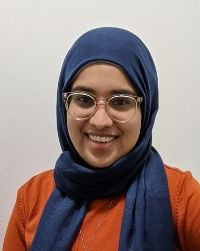
Mahera Badat – Bellevue, Washington
As a Minority Fellowship Program for Mental Health Counseling Master’s Fellow, Badat will receive $10,000 to support her counseling education and recognize her commitment to underserved communities. Badat is a graduate of The University of Texas at Austin and is currently a master’s student in the clinical mental health counseling program at Seattle University.
Upon graduation, Badat will be eligible to obtain her clinical mental health counselor license in Washington and intends to work with refugee and migrant children in King County. As an LMHC, Badat aims to facilitate clients' empowerment, growth, and self-awareness through multiculturally competent mental health counseling, assessments, and diagnosis. After resettling in the United States, war-affected refugee and migrant children require special care. Badat will utilize trauma-informed practices, evidence-based techniques such as CBT and family-based intervention, and other methods developed to meet her young clients’ needs.Earning this fellowship will allow Badat to attend counseling conferences, build connections with other future counselors, and cultivate new practices and skills to better serve underserved populations. Additionally, the fellowship will support Badat's professional growth, both as an advocate for her clients and in her identity as a counselor.
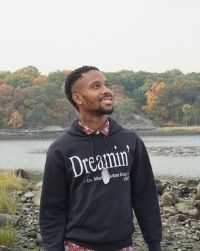
Dorian Banks – Detroit, Michigan
As a Minority Fellowship Program for Mental Health Counseling Master’s Fellow, Banks will receive $10,000 to support his counseling education and recognize his commitment to underserved communities. Banks is a graduate of Marygrove College and is currently a master’s student in the clinical mental health counseling program at Walden University.
Banks' passion and vision for global mental and spiritual elevation is the basis for his desire to serve individuals who lack both awareness and resources in mental health, particularly the African American and LGBTQ population. Banks believes that by teaching and helping these populations adopt more mental wellness practices such as meditation, these cultures will be better able to cope with the economical and societal hardships that contributes the degradation of psycho-spiritual wellness. Banks' fellowship will allow him to connect and collaborate with other aspiring mental health professional. Not only that, but he will also have the resources to research, practice, train, and implement various forms of mental wellness practices that he can then offer to his community.
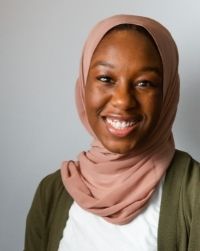
Shani Banks – Bowie, Maryland
As a Minority Fellowship Program for Mental Health Counseling Master’s Fellow, Banks will receive $10,000 to support her counseling education and recognize her commitment to underserved communities. Banks is a graduate of the University of Maryland, College Park, and is currently a master’s student in the clinical mental health counseling program at The George Washington University.
Upon graduation, Banks intends to work with Muslim youth and adults experiencing mood disorders. She is particularly interested in working with Black Muslim populations and women of ethnic minority populations to provide expressive arts and body-oriented mental health interventions. Earning this fellowship will allow her to further develop as a mental health counselor via training opportunities, knowledge-sharing, and community-building.
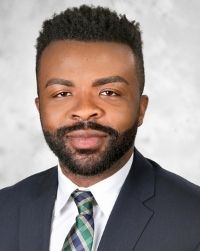
Willie Borkai – Providence, Rhode Island
As a Minority Fellowship Program for Mental Health Counseling Master’s Fellow, Borkai will receive $10,000 to support his counseling education and recognize his commitment to underserved communities. Borkai is a graduate of Roger Williams University and Northeastern University, and is currently a master’s student in the clinical mental health counseling program at Rhode Island College.
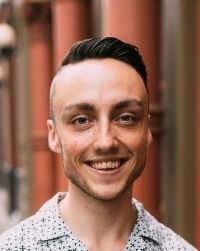
Gary Conachan – Portland, Oregon
As a Minority Fellowship Program for Mental Health Counseling Master’s Fellow, Conachan will receive $10,000 to support his counseling education and recognize his commitment to underserved communities. Conachan is a graduate of Azusa Pacific University and is currently a master’s student in the clinical mental health counseling program at Portland State University.
Having grown up LGBTQ in a religious family and church, Conachan has a passion to help LGBTQ individuals integrate every part of their identity and thrive as leaders in their communities. Further, he desires to help LGBTQ people heal from past trauma, especially within a religious context , and engage spirituality if and how they see fit. Conachan has identified a great need for LGBTQ counselors, especially those who are also people of faith. Whereas sexuality, gender, and faith have often been pitted against each other, he believes folx can integrate their authentic identities. The NBCC Minority Fellowship will give him the opportunity to network with other LGBTQ counseling professionals and attend conferences and trainings to learn best practices for sexual and gender minorities. Finally, this opportunity will help him be the best counselor he can be as a queer person himself.

Ruth Cuevas – Waldfischbach-Burgalben, Armed Forces (AE) Germany
As a Minority Fellowship Program for Mental Health Counseling Master’s Fellow, Cuevas will receive $10,000 to support her counseling education and recognize her commitment to underserved communities. Cuevas is a graduate of Edinboro University of Pennsylvania and the University of Pittsburgh and is currently a master’s student in the clinical mental health counseling program with a specialization in military and veterans program at the College of William & Mary.
Upon graduation, Cuevas intends to work with the military population. Living abroad can be exciting but for many, it is a challenge. Military dependents do not have much of a choice in the matter and must learn to navigate a new culture, a new language, and a new environment during their time overseas. For spouses, finding suitable employment is difficult and staying within their chosen profession can feel impossible. Because Cuevas currently lives in a military community in Germany, she hopes to work with this population for as long as she remains overseas. Upon her return to the USA, she intends to focus more specifically on crisis and trauma and to work with veterans who suffer from combat-related PTSD. Earning this fellowship will allow her to attend counseling conferences to establish a stronger professional identity as a counselor, learn evidence-based practices to better serve underserved populations, and advocate for the counseling profession.
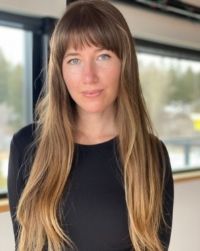
Kara Erickson – Bozeman, Montana
As a Minority Fellowship Program for Mental Health Counseling Master’s Fellow, Erickson will receive $10,000 to support her counseling education and recognize her commitment to underserved communities. Erickson is a graduate of California Polytechnic State University and is currently a master’s student in the clinical mental health counseling program at Montana State University.
After graduation, Erickson intends to work with children and young adults living with a terminal illness or chronic disability, as well as their families. She has a passion for working with children and young adults battling cancer, as well as those living with physical or cognitive disabilities. This passion was cultivated through her experience as the oncology camp director at an organization specializing in adaptive recreation in Bozeman, Montana. The families Erickson had the privilege of serving inspired her to pursuing a career in mental health counseling. She intends to further serve marginalized children, young adults, and their families as a professional mental health counselor. Earning this fellowship will further Erickson's education in evidence-based practices as she works to better serve underserved populations. She is thrilled to have the opportunity as an MFP Fellow to attend counseling conferences and establish a stronger professional identity as a counselor.
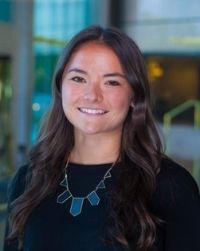
Lauren Flannery – Oak Park, Illinois
As a Minority Fellowship Program for Mental Health Counseling Master’s Fellow, Flannery will receive $10,000 to support her counseling education and recognize her commitment to underserved communities. Flannery is a graduate of Winona State University and is currently a master’s student in the clinical mental health counseling program at Roosevelt University.
Upon graduation, Flannery intends to work with transition-age youth from marginalized racial and ethnic backgrounds who are pregnant and/or parenting. Earning this fellowship will allow her to advocate for more accessible mental health resources for young mothers and to take steps towards achieving a certification in perinatal mental health (PMH-C).
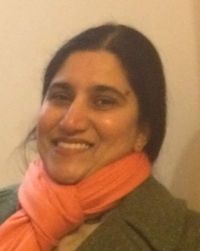
Phalguni Freeman – Chestnut Ridge, New York
As a Minority Fellowship Program for Mental Health Counseling Master’s Fellow, Freeman will receive $10,000 to support her counseling education and recognize her commitment to underserved communities. Freeman is a graduate of LAD College in Maharashtra, India, and of Deanza College in Cupertino, California. She is currently a master’s student in the clinical mental health counseling program at Palo Alto University.
Upon graduation Freeman intends to bring mental health services and resources to the South Asian Indianpopulation by educating, informing, and working with them. She also intends to design resources like workshops for adolescents to help them develop a strong sense of self and lay a foundation for them to reach the highest potential. This Fellowship award will allow her to create resources and develop skills to better serve underserved populations and combat stigmas related to mental health.
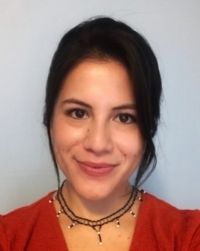
Connie Gago – Rockville, Maryland
As a Minority Fellowship Program for Mental Health Counseling Master’s Fellow, Gago will receive $10,000 to support her counseling education and recognize her commitment to underserved communities. Gago is a graduate of the University of Maryland, College Park, and Montgomery College. She is currently a master’s student in the clinical mental health counseling program at Liberty University.
Upon graduation, Gago plans to work with underserved communities, particularly the Latinx community. In the Latino/a community, spirituality and religion are important, and Gago plans to use evidence-based treatments that effectively incorporate spirituality and religion in mental health settings. Through advocacy, education, and community-based efforts, Gago hopes to destigmatize the meaning of mental health in the Latino/a community and offer culturally competent treatment. This fellowship will help Gago to further develop her identity as a counselor through mentorship from counselors who embody high national standards of practice. It will also grant her opportunities to learn evidence-based practices through counseling conferences and trainings, and to equip herself with the tools, resources, and knowledge she needs to effectively serve underserved communities.
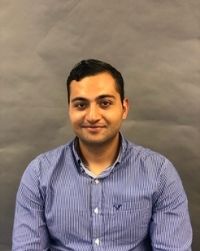
Guillermo Garcia – San Francisco, California
As a Minority Fellowship Program for Mental Health Counseling Master’s Fellow, Garcia will receive $10,000 to support his counseling education and recognize his commitment to underserved communities. Garcia is both a graduate of San Francisco State University and a current master’s student in the school counseling program.
Upon graduation, Garcia intends to work with historically underserved populations in urban schools who experience trauma, marginalization, and barriers to access to mental health services. Garcia also hopes to normalize counseling in his community. Earning the scholarship will allow Garcia to establish a stronger professional identity as a counselor, connect with professionals in the counseling field, and develop skills to better serve underserved populations.
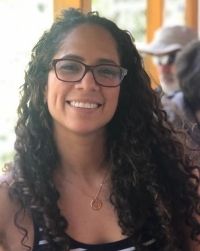
Vera Godoy Reyes– Broomfield, Colorado
As a Minority Fellowship Program for Mental Health Counseling Master’s Fellow, Godoy Reyes will receive $10,000 to support her counseling education and recognize her commitment to underserved communities. Godoy Reyes is a graduate of the Universidad Católica de Honduras and is currently a master’s student in the clinical mental health counseling program at the University of Colorado Denver.
Upon graduation, Godoy Reyes intends to offer culturally and linguistically sensitive individual and group mental health services to immigrants and refugees who are adjusting to life in the United States, particularly those who have experienced trauma. Earning this scholarship will allow Godoy Reyes to pursue certifications and training in areas related to trauma, and to learn evidence-based practices as she works to serve the immigrant and refugee community better.
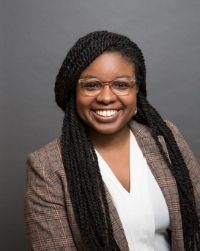
Dominique Harrington – Washington, D.C.
As a Minority Fellowship Program for Mental Health Counseling Master’s Fellow, Harrington will receive $10,000 to support her counseling education and recognize her commitment to underserved communities. Harrington is a graduate of the University of Richmond and is currently a master’s student in the clinical mental health counseling program at The George Washington University.
Upon graduation, Harrington intends to serve the Black and LGBTQ communities, while specifically focusing on emerging adults. She would like to work with Black LGBTQ couples as well.For too long, culturally sensitive mental health care has been inaccessible or stigmatized.Earning this fellowship will pave the way for her to attend counseling conferences to network with a diverse group of counselors and to better advocate for systemic changes within and outside of the counseling profession.She will also learn how to better serve her target populations with evidence-based practices.This fellowship will equip Harrington with the skills to achieve her top three professional goals: help the Black community heal through counseling and historical knowledge, destigmatize mental health care in the Black community, and make mental health care more accessible for everyone.
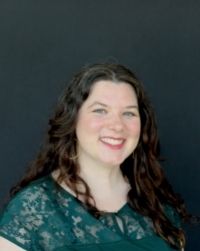
Eliza Jane Harris – Boone, North Carolina
As a Minority Fellowship Program for Mental Health Counseling Master’s Fellow, Harris will receive $10,000 to support her counseling education and recognize her commitment to underserved communities. Harris is a graduate of the University of North Carolina at Chapel Hill and Lesley University. She is currently a master’s student in the clinical mental health counseling program with a certification in expressive arts therapy program at Appalachian State University.
Upon graduation, Harris intends to work with adults who hold LGBTQIA+ and other marginalized identities. Harris intends to use expressive arts as a tool for treating the trauma associated with holding a marginalized identity. She is also passionate about creating more equity within the counseling profession and combating negative associations some folks with marginalized identities have toward counseling. The fellowship will allow Harris to learn more about equity in counseling and specific practices that will support marginalized folks in North Carolina. Harris is grateful to be able to be a part of such an incredible community and looks forward to connecting with the NBCC Fellows.
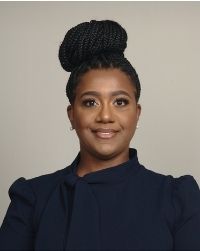
Teshauna Isaac – Toledo, Ohio
As a Minority Fellowship Program for Mental Health Counseling Master’s Fellow, Isaac will receive $10,000 to support her counseling education and recognize her commitment to underserved communities. Isaac is a graduate of The University of Toledo and is currently a master’s student in the dual clinical mental health and school counseling program at Spring Arbor University.
After obtaining her master’s degree, Isaac will work in the same community she grew up in, servicing the mental health needs of underprivileged minorities. She is also excited about launching her nonprofit mentorship business that will help teens at risk of not completing high school. Earning this scholarship will allow Isaac to strengthen her abilities as a multiculturally competent counselor, establish life-long relationships, and receive the extra guidance to become a National Certified Counselor.
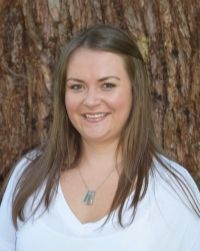
Michaela James – Eugene, Oregon
As a Minority Fellowship Program for Mental Health Counseling Master’s Fellow, James will receive $10,000 to support her counseling education and recognize her commitment to underserved communities. James is a graduate of the University of California, Berkeley, and is currently a master’s student in the clinical mental health counseling program at Bushnell University.
James' interest lies in suicidology with an emphasis in suicide prevention for Native Americans suffering from substance abuse, LGBTQI+ people, and adolescent populations. Thanks to this fellowship, she plans to increase awareness and improve crisis intervention services and resources in Lane County, Oregon, which has a suicide rate double the national average. Since COVID-19, suicide rates have increased. James also plans to dedicate her career to providing bereavement services to those who have been affected by suicide. Her area of research interest is the mental health effects of isolation. This fellowshipallows James to increase her own professional knowledge and explore her interests in the counseling profession.

Arrianna Kennedy – Milwaukee, Wisconson
As a Minority Fellowship Program for Mental Health Counseling Master’s Fellow, Kennedy will receive $10,000 to support her counseling education and recognize her commitment to underserved communities. Kennedy is a graduate of Milwaukee Area Technical College and the University of Wisconsin-Milwaukee. She is currently a master’s student in the clinical mental health counseling program with a specialization in children and adolescents program at Marquette University.
Upon graduation, Kennedy intends to work with children in marginalized communities, specifically Black children impacted by trauma and violence. Earning this fellowship will allow her to establish a stronger professional identity as a counselor, learn evidence-based practices to better serve underserved populations, and advocate for the counseling profession.
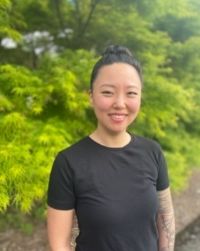
Virginia Sun Moore – Bremerton, Washington
As a Minority Fellowship Program for Mental Health Counseling Master’s Fellow, Moore will receive $10,000 to support their counseling education and recognize their commitment to underserved communities. Moore is a graduate of Gonzaga University and is currently a master’s student in the clinical mental health counseling program at Walden University.
Upon graduation, Moore intends to serve sexual, affectional, and gender-diverse children and youth and and their caregivers in areas of gender-affirming healthcare, transitioning, and coming out. As a Queer Korean, Moore will focus on transformative and intersectional mental health services for BIPOC communities. Additionally, they plan on investing back into the counseling profession as a culturally competent colleague and consultant. Earning this fellowship allows them to develop an individual fellowship plan, receive critical mentorship, and pursue advanced training related to gender-affirming best practices.
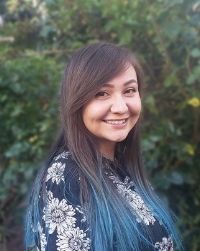
Patricia Nicholson – Portland, Oregon
As a Minority Fellowship Program for Mental Health Counseling Master’s Fellow, Nicholson will receive $10,000 to support her counseling education and recognize her commitment to underserved communities. Nicholson is a graduate of Pennsylvania State University and is currently a master’s student in the school counseling program at Portland State University.
After graduation, Nicholson plans to work with American Indian and Alaskan Native (AI/AN) children, adolescents, and families with lived experience in foster care and adoption. She's interested in exploring the ways that assimilation and the disruption of cultural knowledge and belonging function through the child welfare system. Earning this fellowship will allow her to pursue professional development opportunities, such as trainings and conferences focusing on culture-specific issues, such as Native American overrepresentation in the foster care system and transracial adoption. While Nicholson aims to weave Indigenous ways of knowing into her own professional counseling work, she also believes that a decolonized praxis that builds upon the strengths of Indigenous people would benefit all of us in the counseling field who work and live on the stolen lands of the first peoples across North America. To this end, she hopes to raise awareness of the unique traumas, strengths, and gifts of Indigenous people with the professional counseling community.
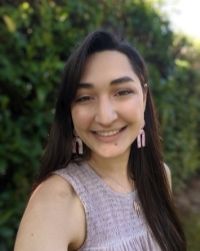
Corrine Nightingale – Washougal, Washington
As a Minority Fellowship Program for Mental Health Counseling Master’s Fellow, Nightingale will receive $10,000 to support her counseling education and recognize her commitment to underserved communities. Nightingale is a graduate of Washington State University and is currently a master’s student in the clinical rehabilitation counseling program at Portland State University.
Upon graduation, Nightingale intends to work with BIPOC people with disabilities or chronic illness, particularly people who hold biracial or multiracial identities. Earning this fellowship will help her to access additional educational resources, such as training and workshops related to her target population. Nightingale is greatly looking forward to the community and professional identity development available through this fellowship experience.
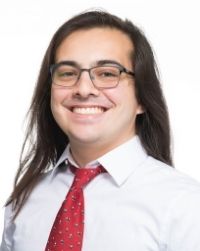
Robert Ocampo – Gainesville, Florida
As a Minority Fellowship Program for Mental Health Counseling Master’s Fellow, Ocampo will receive $10,000 to support counseling education and recognize his commitment to underserved communities. Ocampo is a graduate of the University of Florida and is currently a master’s student in the clinical mental health counseling program at The University of Florida.
Upon graduation, Ocampo hopes to secure a position as a mental health counselor working within the public school system to deliver services to adolescents, particularly those with marginalized identities. He hopes to do this by providing multiple services, such as by seeing clients, setting up anti-racism trainings, helping facilitate LGBTQIA+ support groups, engaging in crisis intervention work, or finding ways to work in the community. With the effects of the pandemic likely to extend well into the future, Ocampo will also be exploring how we as counselors can better meet the needs of marginalized students and communities, who have shouldered much of the societal burden so far. It is his hope that by meeting the most marginalized students where they are, he can learn to better meet the needs of all his clients. This fellowship will enable him to attend conferences, learn evidence-based practices, and hone his skills as a practitioner in pursuit of these goals.

Ashabi Owagboriaye – Chicago, Illinois
As a Minority Fellowship Program for Mental Health Counseling Master’s Fellow, Owagboriaye will receive $10,000 to support theircounseling education and recognize their commitment to underserved communities. Owagboriaye is a graduate of Harold Washington College, part of City Colleges of Chicago, and of Northeastern Illinois University. They are currently a master’s student in the clinical mental health counseling program at Roosevelt University.
Owagboriaye's intention is to work with first-generation African immigrant children within the diaspora.They would like to provide children of diverse backgrounds a space to navigate their various identities in a way that validates their experiences. They also hope to provide parents with more mental health resources that are culturally signifigant to their lives, so there’s less harm within the child-parent relationship. Being a part of this fellowship will allow them to continue building a lasting relationship with these community members by attending conferences and workshops that will strengthen their skill sets as a counselor in the field.
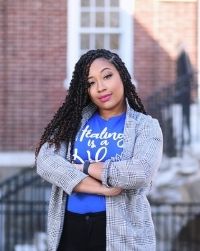
Jennifer Owens – Vineland, New Jersey
As a Minority Fellowship Program for Mental Health Counseling Master’s Fellow, Owens will receive $10,000 to support her counseling education and recognize her commitment to underserved communities. Owens is a graduate of Rowan University and is currently a master’s student in the clinical mental health counseling program at Wilmington University.
Upon graduation, Owens wants to continue spreading awareness about the intersectionality of nutrition and mental health in the African-American community. Owens plans to incorporate her background in mental health, group fitness, yoga, and meditation to operate a company that arranges free retreats for minority children and their parents. These retreats will provide individual and group counseling, nutrition education, meditation, journaling, and extracurricular activities to teach the participants about the seven areas of wellness and how to live a balanced lifestyle. In addition, Jennifer plans to utilize the monetary reward to launch her nonprofit organization, the WHO Foundation. The WHO Foundation stands for "We Have Opportunities," and its primary purpose is to deter all forms of juvenile delinquency and promote purpose in the lives of youth in disadvantaged areas. The program will pay for and provide transportation to attend extracurricular activities such as dance, karate, football, swimming, computer coding, musical instruction, and more.Children will attend tutoring and age-appropriate life skills classes in exchange for the activity of their choice. Owens believes that overall wellness is the key to a successful life and she plans to introduce the tools to as many people as possible along her journey.
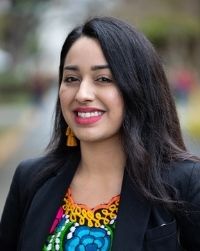
Alina Quintana – Sacramento, California
As a Minority Fellowship Program for Mental Health Counseling Master’s Fellow, Quintana will receive $10,000 to support her counseling education and recognize her commitment to underserved communities. Quintana is a graduate of the University of California, Davis, and is currently a master’s student in the career counseling program at California State University, Sacramento.
Upon graduation, Quintana intends to work with college students, particularlyfirst-generation, low-income, and nontraditional students experiencing career indecision and barriers to their educational attainment. Quintana believes that through career services, we have the opportunity to catapult promising students from low-income backgrounds to the middle class, and that has a ripple effect on their family and ultimately their community. Quintana is determined to serve and advocate for marginalized communities in her community of south Sacramento and beyond. Earning this fellowship will allow her to attend national conferences and attend presentations on counseling strategies and the latest research in the field and take this knowledge back to her community. Quintana is especially excited to be mentored by NBCC Foundation volunteers and be connected with those who are nationally recognized practitioners.
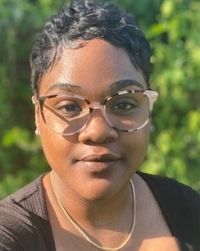
Tihira Ruffin – Detroit, Michigan
As a Minority Fellowship Program for Mental Health Counseling Master’s Fellow, Ruffin will receive $10,000 to support her counseling education and recognize her commitment to underserved communities. Ruffin is a graduate of Eastern Michigan University and is currently a master’s student in the clinical mental health counseling program at The Chicago School of Professional Psychology.
Upon graduation, Ruffin plans to work with adolescents and adults addressing grief and trauma, specifically within Black and brown communities and other marginalized groups, such as the LGBTQ+ population. She envisions working toward destigmatizing mental health services within disadvantaged communities. Earning this fellowship will allow her to continue funding her education, strengthen her counseling skills through NBCC trainings, and build a professional presence by joining counseling networks in the state of Michigan.
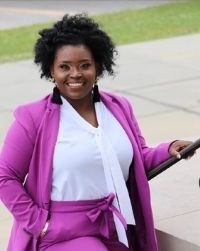
Amber Slaughter – Tuscaloosa, Alabama
As a Minority Fellowship Program for Mental Health Counseling Master’s Fellow, Slaughter will receive $10,000 to support her counseling education and recognize her commitment to underserved communities. Slaughter is a graduate of The University of Southern Mississippi and is currently a master’s student in the clinical mental health and counselor education program at The University of Alabama.
Upon graduation, Slaughter intends to work among communities that are marginalized and lack resources, particularly minority female populations and Black female populations who identify with Imposter Syndromeand have experienced feelings of inadequacy not being “good enough.” She would also like to work with troubled female adolescents and adults who are in need of integrative approaches that target trauma experiences and racial disparities in underrepresented communities. Earning this fellowship will allow her to receive robust training, access informative webinars, and network with high-achieving colleagues that will contribute to advancing her identity as a well-rounded and culturally competent Licensed Professional Counselor.
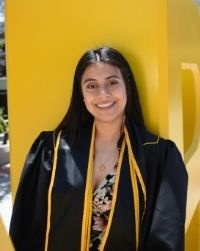
Carla Vargas – Downey, California
As a Minority Fellowship Program for Mental Health Counseling Master’s Fellow, Vargas will receive $10,000 to support her counseling education and recognize her commitment to underserved communities. Vargas is a graduate of California State University, Long Beach, and is currently a master’s student in the clinical mental health counseling program at California State University, Fullerton.
Following graduation, Vargas intends to serve children and adolescents with intersecting identities, particularly Latinx youth. As a bilingual and bicultural individual, she plans to utilize her skills and knowledge to provide inclusive services to marginalized groups. Language barriers are often a reason why Latinx individuals do not seek mental health services, andVargas will offer Spanish-language counseling services in her effort to bridge the gap among underserved minority populations in the community. Receiving this fellowship will provide Vargas with the financial means to increase her professional development as a counselor.This includes the opportunity to attend counseling conferences and training sessions to gain knowledge on therapeutic techniques and interventions to support children and adolescents. Further, this fellowship will provide her with the financial means to join the American Counseling Association (ACA) and apply for certification through NBCC.

Shabiroon Vereen – Trumbull, Connecticut
As a Minority Fellowship Program for Mental Health Counseling Master’s Fellow, Vereen will receive $10,000 to support her counseling education and recognize her commitment to underserved communities. Vereen is a graduate of Southern Connecticut State University and the Atlanta College of Art, and is currently a master’s student in the clinical mental health counseling program at Western Connecticut State University.
Upon graduation, Vereen intends to work with marginalized youth to provide art therapy services, which usually require out-of-pocket payment and are not readily available to low-income households. She plans to incorporate an aspect of family systems in the therapeutic process, as many minority groups value the multi-generational living arrangement. Earning this fellowship will allow her to access training that focuses on cultural competencies , utilize relevant research-based strategies.and ultimately offer cutting-edge interventions.
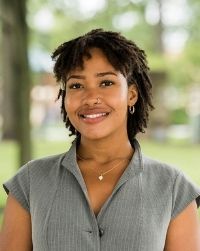
Lauren Walker – Chicago, Illinois
As a Minority Fellowship Program for Mental Health Counseling Master’s Fellow, Walker will receive $10,000 to support her counseling education and recognize her commitment to underserved communities. Walker is a graduate of Clark Atlanta University and is currently a master’s student in the clinical mental health counseling program at Northwestern University.
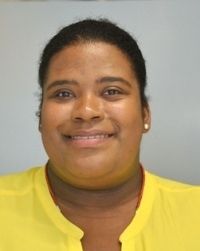
Jada Young – Brooklyn, New York
As a Minority Fellowship Program for Mental Health Counseling Master’s Fellow, Young will receive $10,000 to support her counseling education and recognize her commitment to underserved communities. Young is a graduate of the State University of New York (SUNY) at Albany and SUNY New Paltz. She is currently a master’s student in the school counseling program at Brooklyn College, part of the City University of New York (CUNY).
Upon graduation, Young intends to work with underserved young people of color by providing direct counseling support in New York City public high schools. She would also like to work with other low-income people of color in urban communities to help increase access to mental health services. Young recognizes the importance of ensuring access, availability, and affordability of vital counseling services so this population can live fulfilled and empowered lives. Earning this fellowship willenhance the learning she receives in the classroomwith deeper connections between theory and practice. She aspires to advance the counseling profession more broadly through academic research and writing.
